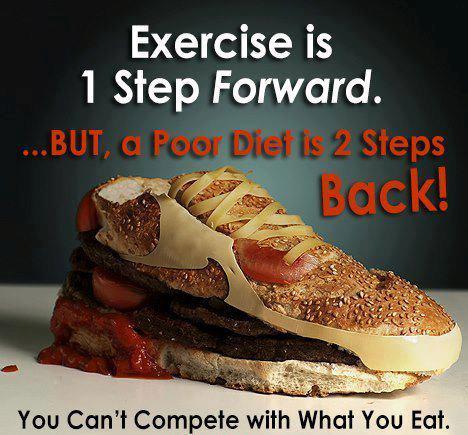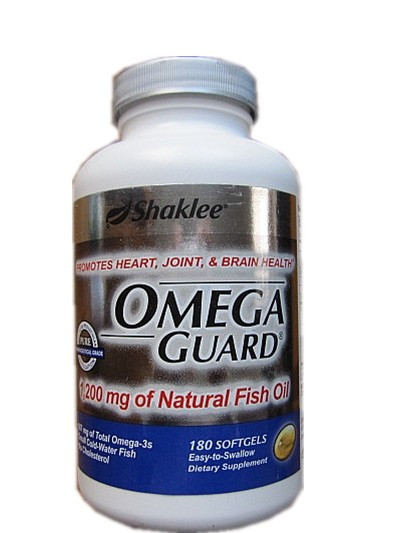People search fervently for anything that will help them build more muscle, lose more fat, and achieve their dream body. Knowing this, supplement companies are compelled to constantly come up with “new”, “more powerful” and “breakthrough” products to help people achieve their goals. There are more fat-burning, muscle building products on the market today than ever before. Do they work? Can these products help us reach our peak? The answer is both yes and no.

Through clever marketing people today are convinced that “looking good” is only one pill or powder away. They view supplements as being a magic bullet, that will get them the body of their dreams. Yes, some of these products work and can help bolster your results. But they cannot compensate for an inadequate training program and/or poor nutrition.
First Things First Regarding “Supplements”
Understand what supplements are. The word, supplement means, “addition; complement; enhance.” It does not mean “to correct; make up for; solve” yet this is the view most people have of them. They see supplements as the answer or when they are merely an aide.
No supplement, regardless of the claims made, is going to make a dramatic difference in fat-loss and muscular gains if training and nutrition is inadequate. Supplements are meant to do nothing more than “fill-in the gaps” so that the body always gets what it needs when it needs it.
Combined with a training and nutrition program that meets the specific needs of the individual, supplements can help boost exercise performance, recovery and ultimately, results. Your goal is to maximize fat-loss and muscular development and that cannot be achieved unless the two major components; training and nutrition, are first in place. Supplements will only be as effective or as useful as your training and nutrition dictates.
Until you are able to make gains simply by manipulating your training and nutrition alone, you should not be using supplements (with a few exceptions we’ll discuss shortly). Often individuals are compelled to use supplements because they need something to help compensate for their poor training and nutrition practices. If they had a proper training and nutrition program, then the supplement(s) would most likely be unnecessary.

Before I fully understood the basic components of exercise and nutrition, and learned to effectively apply them, I would try every new product that hit the market in an attempt to enhance my physique. About ninety-nine percent of the time the results were either short-lived or insignificant. Even with continued use of a product I still could not make any better progress than what I had already. After years of frustration, trying new product after new product and getting very little return on my investments I decided to drop the supplements altogether and take a harder look at my diet and training.
It was only after I got a handle on my training and nutrition that I was able to finally see how supplements really fit into the process of optimizing physique development. It became clear that supplements could assist in my progress but only if things were rolling in the right direction to begin with. If things were not going in the right direction, the supplements could do little to change this.
Getting a handle on training and nutrition first is important for another reason: when you utilize a particular product or substance you want to know for certain whether or not it actually works! You want to be able to measure its impact if any at all! But you cannot make this assessment unless you first know the effect that certain training and nutrition practices have without the addition of that supplement. Once you know this, you can better evaluate the supplements effectiveness and worth.
For example, many times people who start taking fat-burners simultaneously start exercising more frequently and consciously eat less—two things that by themselves result in greater fat-loss. So is it the pill or the training and diet that results in greater fat-loss?
Which Supplements and When
Under “normal” conditions (i.e., not attempting to peak or drop body-fat very low) many supplements are of little benefit. If you are taking in ample amounts of nutritious foods and your training demands/recovery time is properly balanced, the impact of most supplements is minuscule. There are, of course, exceptions to this which I will get to momentarily. Understand for now, supplements tend only to be of significant help under conditions where the body is most depleted yet needing to function at a high capacity, i.e. peaking. If your body-fat is not rock bottom or on its way there and you are taking in enough nutrients to maintain a positive nitrogen balance and ward off muscle catabolism and you are not scraping the bottom of the proverbial barrel just to get through your exercise each day then supplements are unnecessary. The reason is 97-99% of your results will come from properly applied training and nutrition. It’s only in trying to realize that last 1-3% of your potential that supplements can help put your training and nutrition over the top.
With the wide variety and abundance of supplements available for fat-loss, muscle enhancement and exercise performance, it would be too daunting a task to discuss them all in great detail here. The following are those supplements which I personally have found to be most pertinent, useful and effective.
Food Supplements
There are some supplements whose regular utilization is not only warranted but many times necessary. One of the most important supplements you can ever take and one that should remain constant throughout the year is a quality protein powder. Because of our busy lives, it is often difficult and inconvenient to consume adequate amounts of protein throughout the day from “real” foods such as meat, chicken, turkey, or eggs unless we are well prepared or working from home.
Protein in the form of whey, casein, and non-GMO soy protein powders make it easy and convenient to get as much protein as you need throughout the day. These products mix quickly, easily and provide all the necessary amino acids for muscle repair and growth. Protein bars can also provide a sufficient supply of protein per serving, but be aware that the quality of protein is rarely as good or as complete as with the powders and some bars are loaded with sugars and trans-fats which more or less defeats their purpose as a “healthy” snack or meal replacement.

Along these same lines of useful and valuable food supplements are amino acids. Amino acids help to provide the muscles with an immediate supply of high quality aminos, improves nitrogen retention and helps prevent muscle catabolism. They are particularly useful if you are not consume a variety of proteins.
A good Multivitamin can provide you with your daily requirements of all the necessary vitamins and minerals. Let’s face it, few of us eat as many fruits and vegetables as we should (myself included) and considering the way they are cultivated and treated today with chemical additives to make them grow larger and look better their nutritional value is not what it once was. Also, with how heavily processed many of our other foods are, daily consumption of a multivitamin can ensure that your body is getting what it needs to function optimally and fight infectious disease and sickness.
I take Shaklee Men’s Vitalizer strips
Fish Oil
Fish Oil/EFA’s (essential fatty acids) are essential to getting Omega-3 & 6 fatty acids. The health benefits of Omega-3’s have been well documented for years.
The laundry list of these benefits includes:
• decreased triglyceride levels
• decreased growth rate of atherosclerotic plaque
• improved Arrhythmia (irregular heart beat)
• helps to lower LDL’s and raise HDL’s (bad and good
cholesterol respectively)
• lower blood pressure
• improved mood
• aids in fat-loss
• relief from joint pain
• improved autoimmune function
• improved brain development and memory function
• helps control Type II Diabetes
• helps relieve dry skin

Those Fish Oil/EFA supplements which are high in EPA/DHA will help you metabolize more fat and contribute immensely to your cardiovascular health. The amount of research being accumulated on the benefits of Fish Oils/EFA is becoming quite extensive; however, most of it up till now has been geared towards cardiac health and only in the last decade or so has its effects on fat-loss been more closely examined. The results of such studies have been quite impressive in that the subjects were losing fat with the implementation of exercise. Studies which have compared the effects of FO supplementation and exercise both independently, and combined conclude that the addition of Omega-3 to an exercise regimen greatly improves fat-loss and cardiovascular lipid profiles. But once again the news gets even better as those studies had the subjects performing only low intensity aerobic exercise as opposed to high intensity anaerobic exercise which we already know has greater impact on body composition and fat-loss!
All in all it is a pretty safe bet that supplementing with approximately 3-6g./day of Fish Oil/EFA will reduce your risk of cardiovascular disease and help you shed unwanted body-fat.
Muscle and Performance Enhancing Supplements
I do not view this next supplement as being a must like I do the above food supplements but it has proven to be an effective muscle enhancer and more importantly, a very good recovery agent (i.e., speeds up recovery between workouts). The supplement I’m speaking of is Creatine monohydrate.
The body’s energy supply for muscular work comes from creatine phosphate (CP) and ATP. When we perform muscular work of a high intensity ATP is quickly depleted and must be replenished immediately in order to sustain further amounts of work at this capacity. The phosphate from CP is used to replenish and regenerate ATP. Consuming creating prior to training will top-off your CP stores, which in turn allows ATP to be regenerated quicker. With greater energy reserves you can sustain a heavy work load longer.
Fat Burners
Fat-burners, also known as Thermogenics, are quite easily the most popular supplements on the planet. What used to be a product that could only be purchased at the local vitamin and supplement store or online you can now find lining the shelves of supermarkets! Since the removal of ephedra from this product’s main ingredients it has certainly lost much of its punch.
What needs to be cleared up regarding fat-burners is not whether or not they work but what they actually do and how they can be used most effectively.

First, fat-burners DO NOT BURN FAT per se. These products do in fact help facilitate the use of fatty acids for energy but this does not necessarily correlate to ‘fat-loss’ unless the stage is set for it.
In order to burn fat you must first be in a caloric deficit, period. If you are not in a caloric deficit, taking a fat-burning pill will not magically put you in one without changing your diet. If you pick up any fat-burning product and read the label they all say something to the effect of: BEST USED IN CONJUNCTION WITH A LOW-CALORIE DIET AND EXERCISE. Even the manufacturers realize that their product will not work unless you help it to work.
Fat-burners and thermogenic products are stimulants. Upon consumption they cause an immediate increase in your energy levels and metabolic rate. This is the direct result of caffeine and other stimulating substances being present in high dosages.
Note: Caffeine is responsible for most of the physiological effects of Fat-burners which is why it is the main ingredient in all of them. Caffeine by itself (either as coffee or in pill form) provides the same benefits of most Fat-burning pills and drinks but to a lesser degree because of smaller dosages and the absence of other substance which “amplify” its effects. This makes caffeine a viable alternative for those who cannot tolerate or do not like the stronger effects fat burners/thermogenics can have.
With this sudden rise in energy you feel compelled to start expending some of it if you were not planning on doing so already. So if you were laying on the couch when you took the product about a half-hour later you’ll want to get off the couch and start doing something because you simply can’t sit still. Plus, your metabolism is now moving at faster rate than normal thus you burn more energy per unit of time. So between an increase in energy and rate of energy expenditure you can burn a greater number of calories over the course of a day. Combine this with being in a caloric deficit and voila you start burning body-fat.

Another side-effect of stimulants is appetite suppression. Taking a fat-burner/thermogenic with or between meals can help curb hunger, resulting in you eating less which, you guessed it, means less calories in. Now efforts to burn body-fat are being assisted from both ends…less calories are being taken in and more calories are going out.
What’s important realize is that you do not need these products in order to burn fat. They can be of assistance in the process but they are not necessary. Again I personally have found these products to be most useful under extreme circumstances. Such as, being on a heavily (calorie) restricted diet yet needing to increase or sustain energy levels in order to perform workouts.
When not dieting, I’ve found taking fat-burners/thermogenics prior to my workout helps to increase my mental focus and aggressiveness while training, making for a more productive workout.
Nitric Oxide
In recent years Nitric Oxide (NO) supplements have become widely popular as a muscle and performance enhancer. NO and products like this are known as vasodilators. What these products do is increases the diameter of your blood vessels thereby increasing blood flow to the muscles and vascularity. This results in a great “pump” while training and one that lasts longer after you’re finished training. Other benefits include more rapid recovery and increased energy.
Some of these NO products contain other substances such as Arginine, which promotes the release of growth hormone, improves nitrogen retention and helps in the synthesis of creatine.
Proceed With Caution
You need to be as methodical about your use (addition) of supplements as you are your training and diet. You also need to be honest about their results or lack thereof. Just because a product is purported to do x, y, z does not mean it will deliver. Much of the “scientific studies” done on these products are nothing more than marketing tactics to make you think the “holy grail of bodybuilding supplements” has been discovered and is “now available” for your benefit.

Treat your use of supplements like a controlled experiment. Try to isolate as many factors (i.e. diet, exercise, daily activity) as possible then assess the impact adding the supplement into the mix has on your results if any. Take note of the immediate and/or long-lasting effects and whether they are significant enough to merit further use. Most importantly, do not become dependent on them. There has not yet been enough long-term research on these products for us to know for certain their long-term effects on our health…so proceed with caution.

Pingback: Thermogenic Aids: Do They Actually Work – Gym Fit Workout